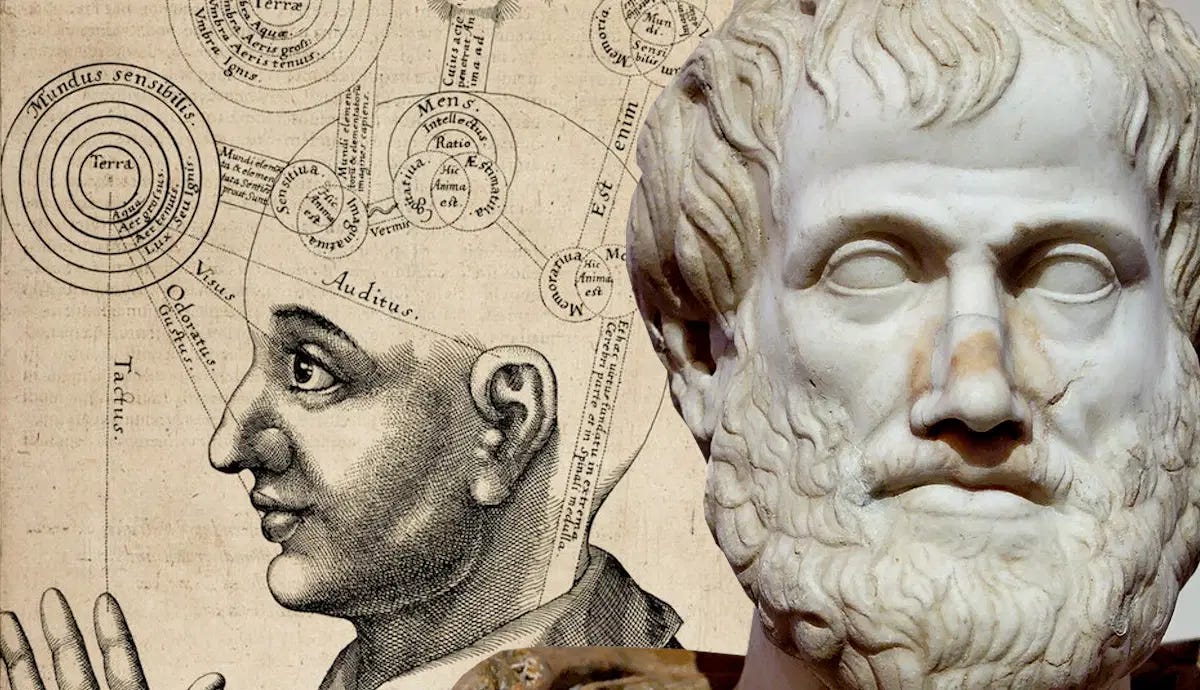How Emotions Can Make You Sick or Healthy
My full article for the WARKITCHEN (Issue 32)
To be physically healthy, we must be emotionally healthy. While traditionally viewed as separate entities, both scientific research and personal experiences alike have proven that our emotional health significantly impacts our physical health. Studies by researchers like Dr. Ronald Glaser and Dr. Janice Kiecolt-Glaser at Ohio State University have proven that stress and negative emotions lead to slower wound healing, increased susceptibility to infections, and immune suppression. A 2005 study by Kiecolt-Glaser found that people experiencing chronic stress had significantly lower levels of immune response, making them more susceptible to different illnesses. Stress is one of the clearest and most common examples of how emotional health affects our physical health. To explain it briefly and easily, when we experience stress, our bodies release hormones like cortisol and adrenaline. While these hormones are useful in short bursts, prolonged stress can cause hypertension, heart disease, diabetes, and weakened immune responses. And, if we talk about women, stress affects us even more. Stress affects our hormones, and it alters a woman’s physical appearance.
To understand this better, prolonged stress in women affect our menstrual cycles, leading to irregular menstrual cycles or even amenorrhea (absence of menstruation), and a woman’s fertility, delaying or preventing ovulation. Stress also affects the balance of estrogen and progesterone, the two main hormones regulating our menstrual cycle. Elevated cortisol can reduce progesterone levels because our body prioritizes cortisol production over progesterone when stress is prolonged. This imbalance can lead to premenstrual syndrome (PMS), and increased symptoms during perimenopause. Estrogen levels may also fluctuate under stress. For some women, stress can increase estrogen levels (leading to estrogen dominance), which is associated with weight gain, and mood swings.
But stress isn’t the only factor that can have an impact on our health. All emotions affect our physical health, and can either heal us (positive emotions like gratitude can heal and make us healthier), or they can make us sick.
I will never forget the first book I ever read that changed my life. I was 12 years old, and my mom recommended me a book that she was reading: You Can Heal Your Life, by Louise L. Hay. Back then, after reading that book, Louise L. Hay became for me what Ray Peat is for many now. She was a pioneer in the field of mind-body connection. She believed that our emotions and thoughts have a profound impact on our physical health, and she was right.
Hay suggested that every physical illness correlates with specific emotional patterns or beliefs. For example, resentment and bitterness can affect the heart and immune system. She believed that when people hold grudges or resentment, and that resentment is never resolved, it starts suppressing the body’s natural healing ability, potentially creating heart disease or even cancer.
Another common example is how anxiety and fear are associated with respiratory issues, including asthma. She believed that fear limits our capacity to “breathe freely” and experience life, which can manifest in breathing-related conditions.
Thanks to that book, I learned a million things, and it helped me start healing my own childhood traumas, when I was still a very young girl. Her knowledge fascinated me, everything started to make so much sense. When I was a child, I used to have frequent nosebleeds. The doctors didn’t really know why I had them, I was a healthy child. It was years later, that I learned from Hay’s book that frequent nosebleeds might stem from emotional issues. Hay associated nosebleeds with a need for attention or feeling unnoticed. She suggested that those who experience nosebleeds might have an underlying need to be recognized or heard. This was true for me: I was an only child, raised by a beautiful and hard-working single mom who did her best to make me feel loved, but I was experiencing a lot of unresolved trauma on my own. I didn’t know back then that a book would change everything for me years later.
Sometimes, trying to heal some physical conditions is like placing a band-aid on an open wound if we focus only on the physical aspect of it. We must find the emotional wound, the root cause of it. It’s also true that some health conditions can be purely physical, but most are deeply influenced by our emotions and thought patterns.
We can’t have good physical health if we don’t have good emotional and mental health.
A couple of years after reading You Can Heal Your Life for the first time, in my last year of high school, I decided to do more research and learn more about this fascinating topic, outside of Hay’s work. The connection between emotions, the mind, and physical health didn’t only fascinate me and Hay. I found out that it has fascinated people for centuries, including many well-known philosophers.
For example, Aristotle (384–322 BCE) talked about how emotions affect human behavior and our health. In some of his works like Nicomachean Ethics and On the Soul (De Anima), he stated that a healthy and balanced emotional state, or moderation (the “Golden Mean”), was necessary to have a healthy life. He saw emotions as part of what shapes our character and health. He wrote about how emotional excesses, like uncontrolled anger or jealousy, could lead to physical problems, while positive emotions could create a balanced, healthy state. In his view, this balance contributed to overall good health, which he called eudaimonia— a term often translated as “flourishing” or “living well.”
In On the Soul, Aristotle proposed that emotions (such as fear or joy) are not merely mental experiences, but also have physical manifestations. He stated that every emotion involves a physiological change. In Poetics, he introduced the concept of catharsis, a process through which intense emotional experiences can lead to purification and relief. He believed that experiencing and releasing our emotions, particularly through art and drama, had a healing effect on both the mind and body.
René Descartes (1596–1650) also examined the relationship between mind, body, and emotions. While often seen as a dualist (separating mind and body), he believed that emotions, or “passions”, connect the mind and body and influence each other. He reflected this in his work Passions of the Soul. Descartes described six primary passions: wonder, love, hatred, desire, joy, and sadness. He explained that each passion influences physical states and can even affect our health depending on the emotion’s intensity and duration.
One last example, even though there are many more that could be mentioned, is Friedrich Nietzsche (1844–1900). In Thus Spoke Zarathustra, he wrote about the “spirit of gravity,” a metaphor for the weight of negative emotions and thoughts that drag a person down physically. Nietzsche used the Greek gods Dionysus and Apollo to represent two forces in human nature: Dionysian (emotion, ecstasy) and Apollonian (order, reason, and restraint). He believed that embracing the Dionysian — allowing ourselves to feel and express intense emotions — was essential in order to live a healthy life. As I mentioned at the beginning, modern science also confirms what ancient traditions, researchers and philosophers, have always believed: that our emotional states significantly influence our physical health, negatively, especially when suppressed.
But, what is the physiology of emotions?
Emotions are experiences that originate in the brain, and that trigger biochemical responses throughout the body. When we feel happy, sad, angry, or anxious, neurotransmitters like serotonin, dopamine, and cortisol are released, influencing our mood and physical state. These are chemicals that control responses to stress, immune function, digestion, and sleep. Prolonged sadness, anger, or grief, can negatively affect our immune system.
Psychoneuroimmunology, which is the study of the connection between psychological processes and the immune system, has also proven that these type of emotions can suppress immune function by altering the production of immune cells and antibodies. Chronic negative emotional states like depression have also been associated with increased levels of inflammation, which is linked to autoimmune disorders, cancer, and other chronic illnesses. The good thing is that positive emotions (or how I like to call them, godly emotions) or positive thinking, on the other hand, are shown to improve our immune function, increasing antibody production which helps the body to protect itself from illness.
The musculoskeletal system is also impacted by our emotional states. Fear (any type of fears, including money worries and financial fears) causes the body to tense up, which creates muscle tightness and tension. Over time, this can lead to back pain, neck pain, and even tension headaches. If someone is dealing with prolonged fear, they may experience chronic abdominal pain, digestive issues, or muscle fatigue in the core area, as the abdominal muscles stay braced or tensed.
Anxiety often triggers subconscious muscle clenching, particularly in the jaw. Those who suffer from anxiety often experience headaches, and muscle pain in the jaw, face, and even the neck. Anger tenses the body, and those whose anger is frequent might develop chronic lower back pain.
To give a few more examples, I’ll share a list of common physical ailments and their associated emotional states or thought patterns. This helps identify them, understand what’s causing them, and start working on releasing these emotions (the root cause of physical ailments), so that we can improve our health:
UPPER BACK PAIN
Feeling unsupported emotionally. Feeling unloved or burdened by life
LOWER BACK PAIN
Often associated with financial worries or feeling unsupported financially.
KNEE PAIN
Pride, ego and inflexibility. Problems with the knees usually come from a resistance to moving forward or being reluctant to compromise.
HEADACHES
Self-criticism, perfectionism, or fear. The pressure people put on themselves to achieve or to be perfect can build up tension and cause headaches.
MIGRAINES
Resisting the flow of life, experiencing pressure. Often rooted in perfectionism.
SORE THROAT
Inability to express yourself, swallowing anger, or feeling repressed.
HAIR LOSS
Fear, tension, stress, feeling of insecurity or lack of control.
INDIGESTION
Anxiety, fear of the unknown, or feeling overwhelmed by life.
CONSTIPATION
Holding on to old ideas or the past, unwillingness to let go, or feeling stuck.
HIGH BLOOD PRESSURE
Long-standing emotional issues, anger, and suppressed emotions.
EYE PROBLEMS
Not wanting to see what’s ahead in life or not liking what you are currently seeing (your current reality).
ACNE
Self-rejection, insecurity, sensitive to criticism.
THYROID PROBLEMS
Suppression of self-expression, feeling unfulfilled, or a belief that one does not get to “have their say.”
MENSTRUAL PROBLEMS (INCLUDING PMS)
Stress, rejection of femininity, guilt, or feeling “unclean” or unworthy. Sexual trauma. Societal or personal shame around womanhood could manifest as menstrual issues.
INFERTILITY
Stress, fear of the future, a lack of confidence in oneself, or unresolved emotional trauma inlcuding mother wounds.









Such an important piece, Amanda! It was an absolute pleasure having you on :)